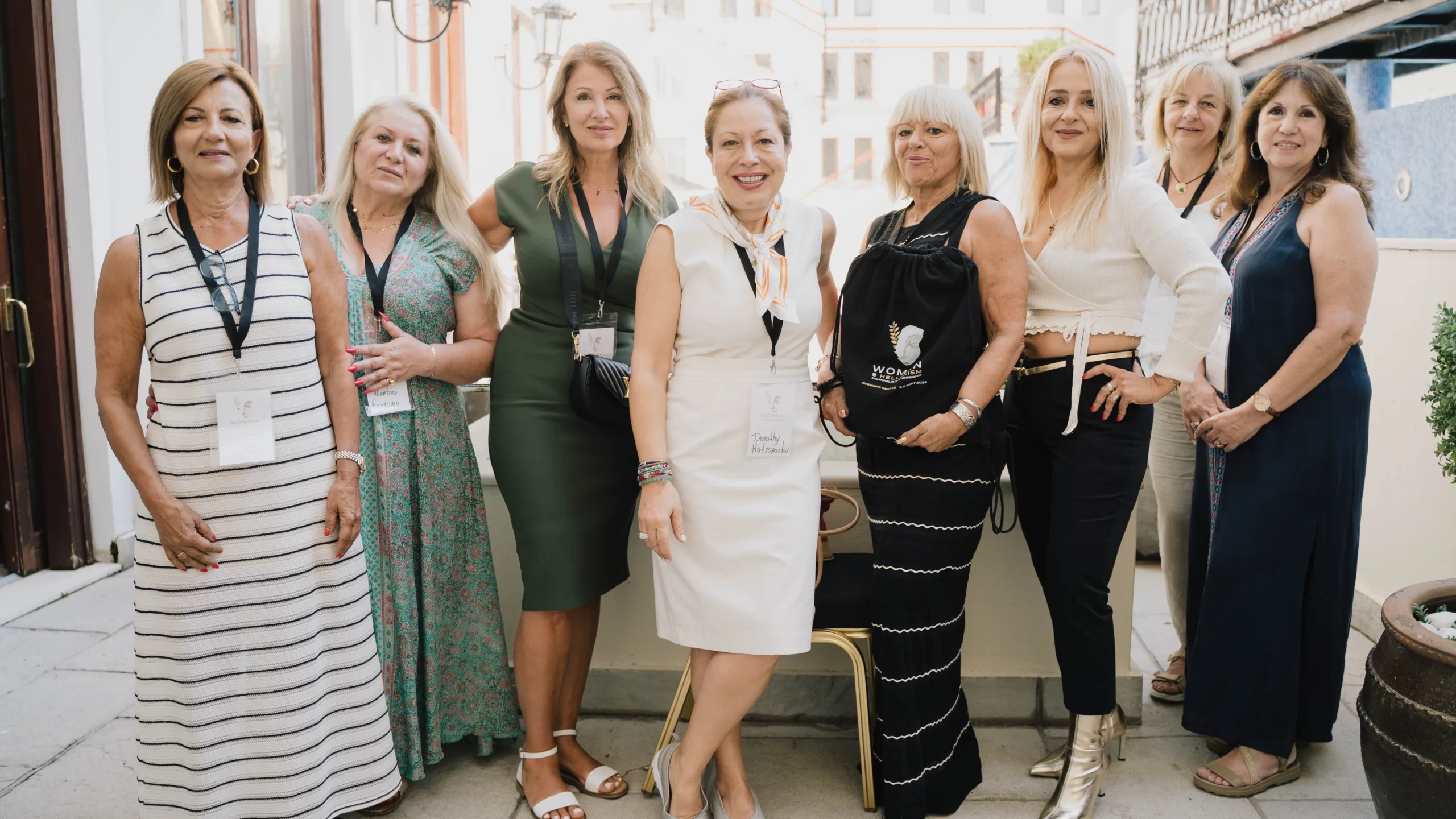Excited and adamant to attend the inaugural Global ‘Women and Hellenism’ Conference in Ioannina, Greece as a ‘fly on the wall,’ being a second generation Greek Australian I couldn’t help but smile nostalgically thinking of “Louie The Fly” in those old fly spray ads.
I wasn’t going to be a mischievous “Louie” fly though but rather, a quiet and discreet observer of this historic event bringing together professional women of Greek heritage from Australia, the USA, Greece, and more.
The conference is the brainchild of Varvara Athanasiou-Ioannou, originally from Thesprotia in Epirus, Greece, who arrived in Australia at age 18. A wife, mother and grandmother of four, her career credentials are long and impressive – educator, human resources professional, community leader and founder of the Food for Thought Network and the Greek Women and Friends Australia Global Forum.
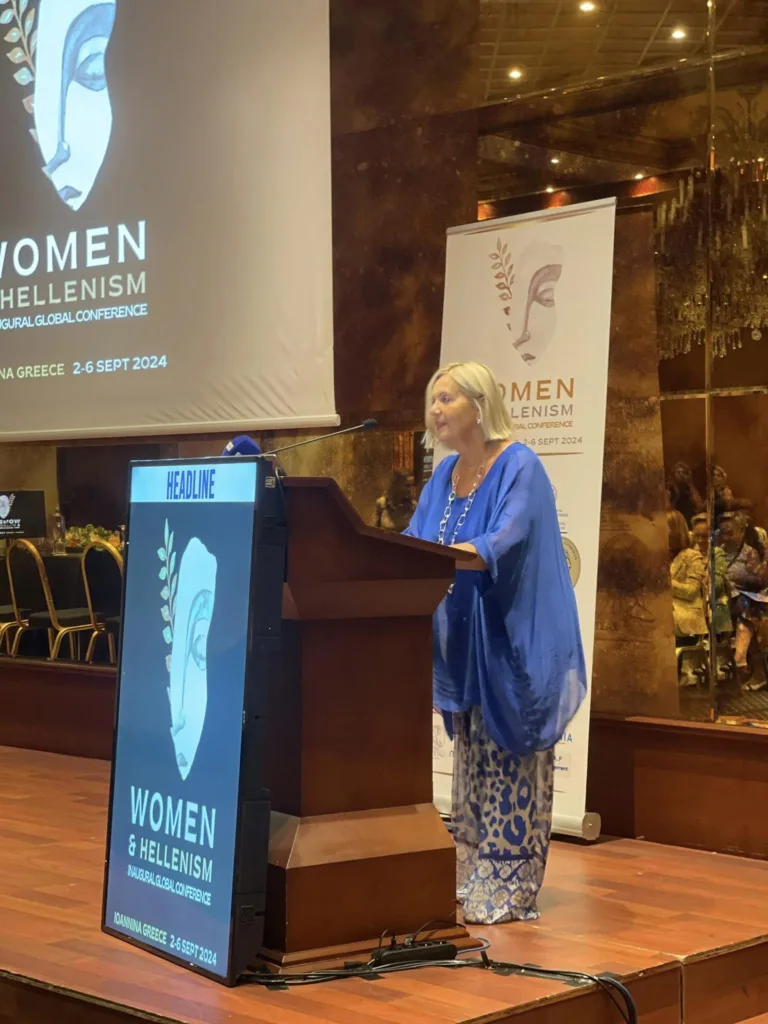
She shared that even though her professional experience in Australia has been rewarding overall, many years back she experienced bullying and discrimination to such a degree, that it left her emotionally shattered. But she decided to soldier on (even surviving cancer), determined to empower women and others towards social inclusion.
Varvara’s book Her Voice: Greek Women and their Friends is part of this empowering process, including connecting with and mentoring others.
“Stories of [42] professional Greek women that weren’t talked about any more, compared to women at the ‘top’ and ‘bottom.’ I wanted people to be moved and inspired and relate to it… to showcase diversity and intersectionality… The book has a wide focus in that it’s not a book written by women for women only. For a society to flourish it needs diversity at the top too, including men,” Varvara said.
Hence this inaugural Global ‘Women and Hellenism’ Conference was in large part prompted by Varvara’s own experiences, and also by her book. She was aided and guided in this ambitious undertaking by her spectacular volunteer Organising Committee – committed women whose hard work cannot be described in a mere paragraph, nor even in an entire article. They were the backbone of the conference’s success.
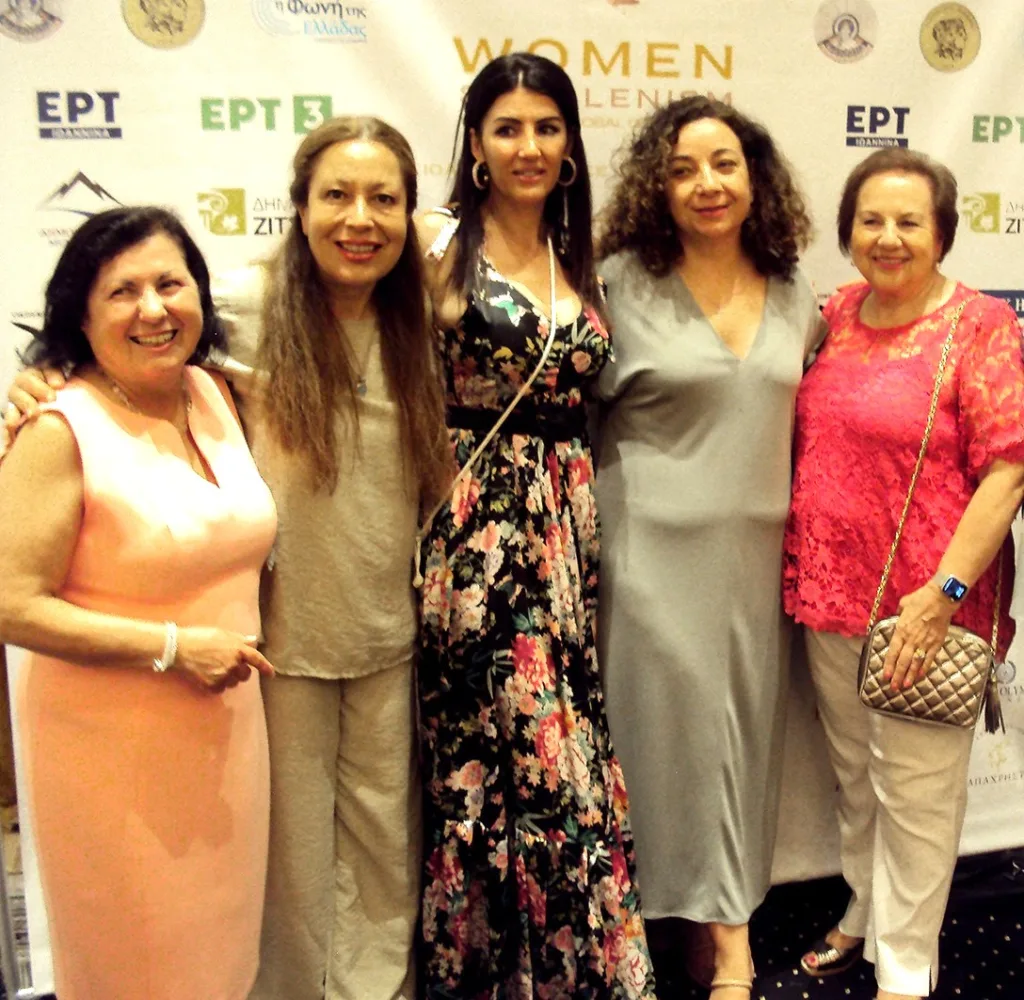
Before I launch into the guts of my observations, Australia’s Ambassador to Greece, Bulgaria and Romania, Alison Duncan, in her greeting for the conference, includes a perhaps more contextual Anglo-centric view, “… as Australia’s societal model evolved, embracing diversity, inclusivity and multiculturalism, and as Australian women as a whole made advances toward greater equality, so did Greek women in Australia.”
Fair enough, but as Greek women, our lived experience is to us unique, visceral and skin deep – often beyond mainstream narrative descriptions and depictions.
The conference speakers (including a male – Prof. John Matsoukas), all excellently presented and discussed themes pertinent to Hellenism, mostly in the context of Hellenic women. Themes like: Greek language maintenance, challenging and navigating identity issues on many levels, as well as gratitude towards our parents and both Anglo and particularly Greek cultures, with God being mentioned too. Health and violence against women – psychological, domestic and sexual – were also important themes (Chanel Contos spoke via video), as was Artificial Intelligence (AI) and encouraging women to increase their low participation in the STEM professions (Prof. Vasso Apostolopoulos spoke too, via video).
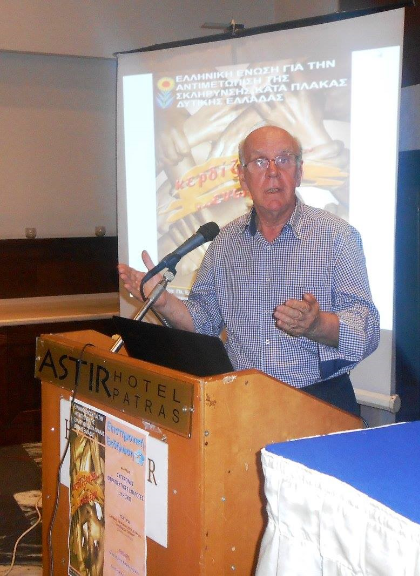
Our experiences as diaspora Hellenic women though, are often beyond everyday language and are sometimes better captured by the Arts. Philologist and cultural historian Dr Konstantina Dounis alluded to the way in which the Greek landscape overwhelms second and third generation Greek Australians (and not just), by referring to stanzas by poet Angela Costi such as: “…You make love to this environment / The hills have slopes you can swoon on / they have seas to melt your gaze…”
Our parents’ generation didn’t really prepare us for the physical beauty of Greece as we were more influenced by intergenerational migration trauma stemming from their essentially forced expulsion due to poverty.
Then there’s the poem, Portrait of A Woman, by Yota Krili describing travels back to Greece after many decades and seeing one’s now elderly mother: “She had no time to mother girls/ she loaded the table with fruits from her garden/ spread her woven blankets on the beds/ opened her chest and offered me her heirlooms/ some were meant to be my dowry/ She enchanted my daughter with her spinning of songs and folktales.” Dr Dounis describes this as “a vivid picture of the convergence of gender, class and cultural threads, the entwining of which has served to constrict women throughout time.”
Dimitra Skalkos too, Managing Director of Foreign Language Press and publisher of The Greek Herald, stressed the importance of community stories in her publications.
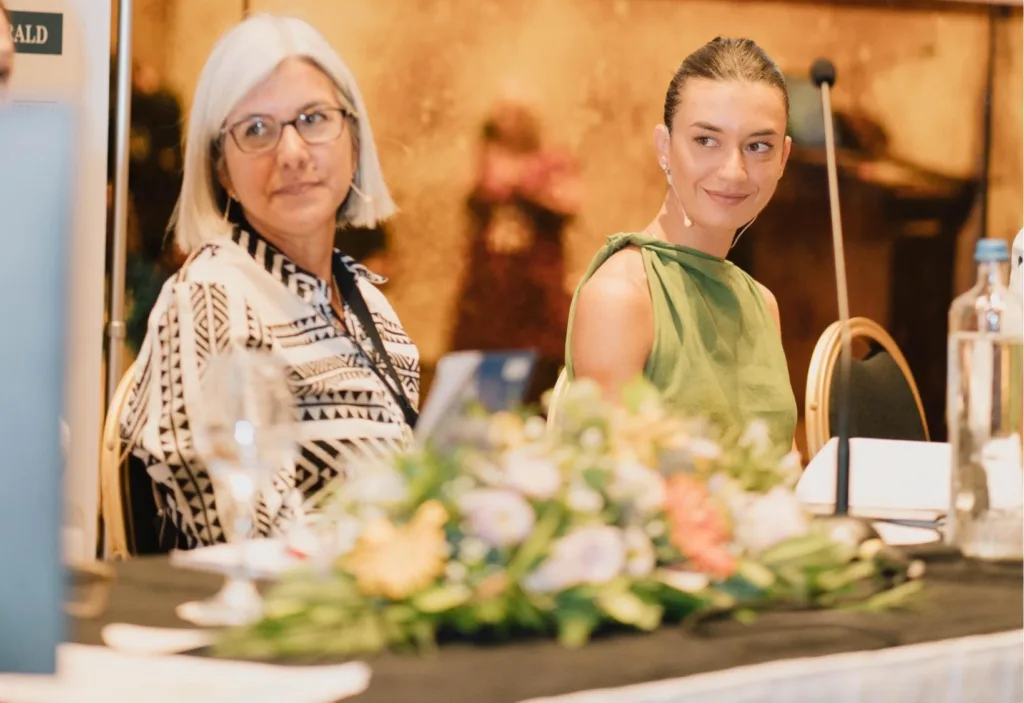
Ms Skalkos expressed her gratitude for the support of the Greek and Cypriot community, stressing that you can’t do everything alone, even though “as women we think we have to.” Her decision to manage The Greek Herald – after its previous owner, her father Theodore Skalkos, passed away – was due to feeling “a sense of responsibility and obligation not only to the legacy of my dad, but also to the community: to inform and inspire.” So much selflessness and meaning beyond just words.
So moved was I by the ideas and their various expressions at the conference, that my ‘separate’ ‘fly on the wall’ vantage point became less relevant. I had moved and converged not just into the audience and speakers, but into another space – as part of, true relationship.
There were tears of joy, of pain, of nostalgia, of release, of relief at having our voices not only heard, but predominantly felt. “It takes a village” was a common repeated sentence, encompassing founder, Varvara’s impassioned “siren call”’ – “United we can!” And there was much laughter too.
One of two Greek American judges present, Pamela Strategakis, caused a wave of belly laughs in describing the challenges that women beyond those of the first generation of Greek heritage face as daughters, wives, mothers and professionals, including mastering “the perfect pastichio” too(!), while claiming “James Bond has nothing on us Greek women!”
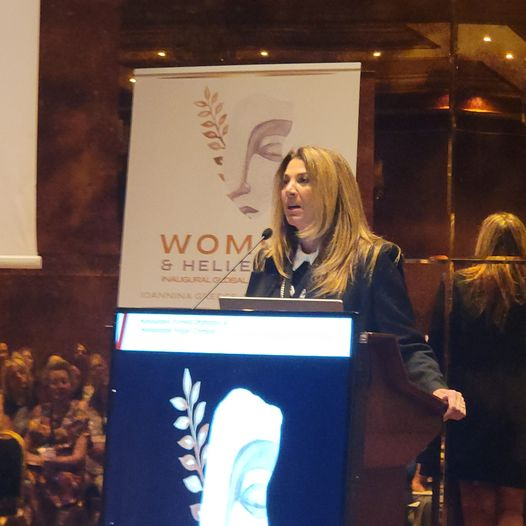
This theme of juggling many roles was also succinctly described by others too, including Greek Australian author, Vivian Pagourelias-Vassiliadis in addressing her life and one of her books, Spinning Plates, Changing Hats. I also noted that she was the only one to mention mental illness as part of her struggle to reach her present equilibrium and freedom.
And there were a few more alternative narrative speakers, daring to question the status quo beyond ethnicity.
Despoina Limniotaki, social psychologist and executive consultant for Public Health for the City of Athens, pointed out, “Drop the gender/equality/multilingualism/ethnicity, and adopt – values/character/diversity and inclusion.” She continued, “make things easier for everybody… salient traits beyond gender and ethnicity,.” Ms Limniotaki even dared to go as far as to say “social workers and activists are great, but we need leaders. There should be Centres of Preparation for political careers, for a humanistic way of living.”
Opera singer and actress, Christiana Aloneftis eloquently referred to seeing beyond gender, ethnicity and culture, acknowledging we’re all sexist “products of the patriarchal model” and stating that she favours a revolutionary feminist perspective rather than a liberal one.
She claimed, “feminism must help men unlearn sexism” as identifying men as oppressors does little to change sexism – “an expression of moral bankruptcy.” She also referenced that dissecting traditional arts is wrong, as is cancel culture, and that we need to find intersectional ways of unity, not division.
Inspiration beyond words was embodied through the dramatic representation of a homage to victims of domestic violence; to femicide in this case. We were all asked to hold up name cards of deceased women, while an actress dressed in white reminiscent of an ancient Greek goddess and/or bride, glided around the audience while a poem by Varvara, We Must Stand Together, echoed in the background.
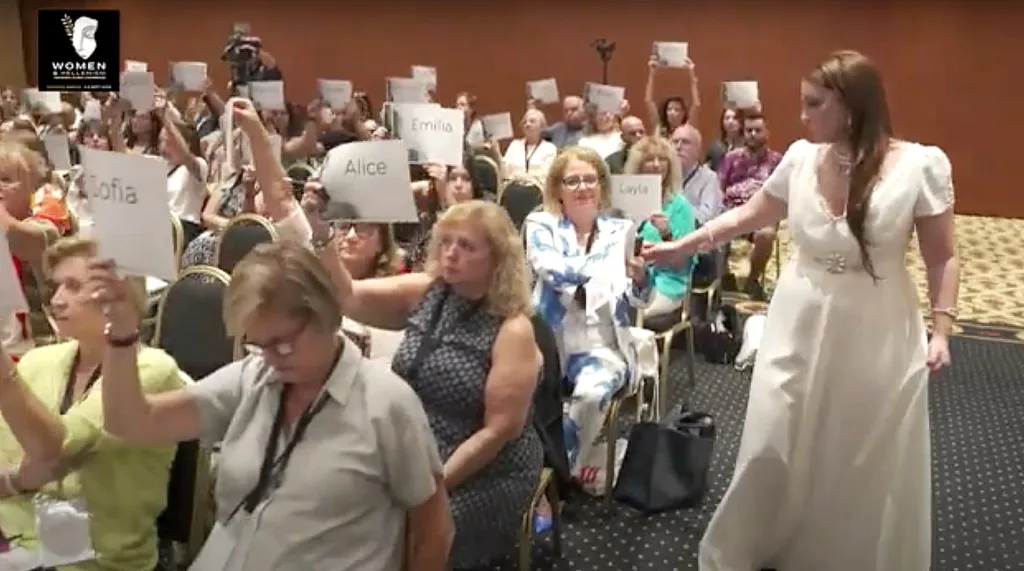
Other highlights of visceral connection occurred when Anthea Sidiropoulos from Melbourne, the conference’s final speaker, sang, rousing us to dance around the room hands clasped in joy. Anthea is a cancer survivor who told us that through her recovery, “music and meditation helped, apart from dietary and holistic theory originating in Ancient Greece.” She reminded us on many levels, of “the universal language of music” and the bridge that it creates among generations.
So much more to tell of this wonderful conference, many more speakers to want to mention but it would take an entire book. Dr Vivianne Nikou, a school principal from Alphington Grammar School in Melbourne, nicely summed up what Hellenism means to her.
“It’s about the way your heart beats when you mix with Greek people,” she said.
Well we certainly did mix, connect and bond, also with two days of cultural excursions around Ioannina.
And this former ‘fly on the wall,’ along with the others, transformed in the aura of the magic of it all, into nymphs, muses, goddesses and gods. Hellenism transcending time.
The Global ‘Women and Hellenism’ Conference was live streamed on both days. You can find the live streams below:
